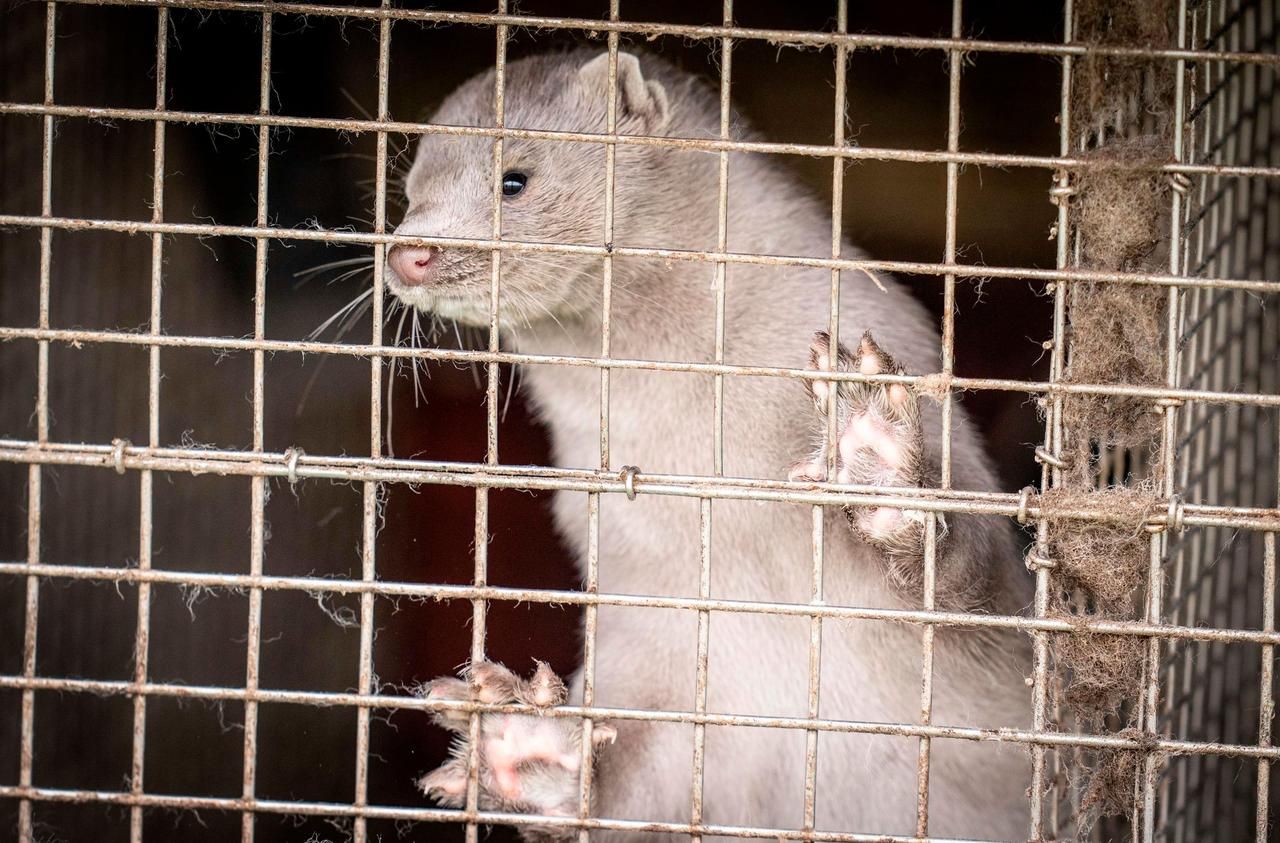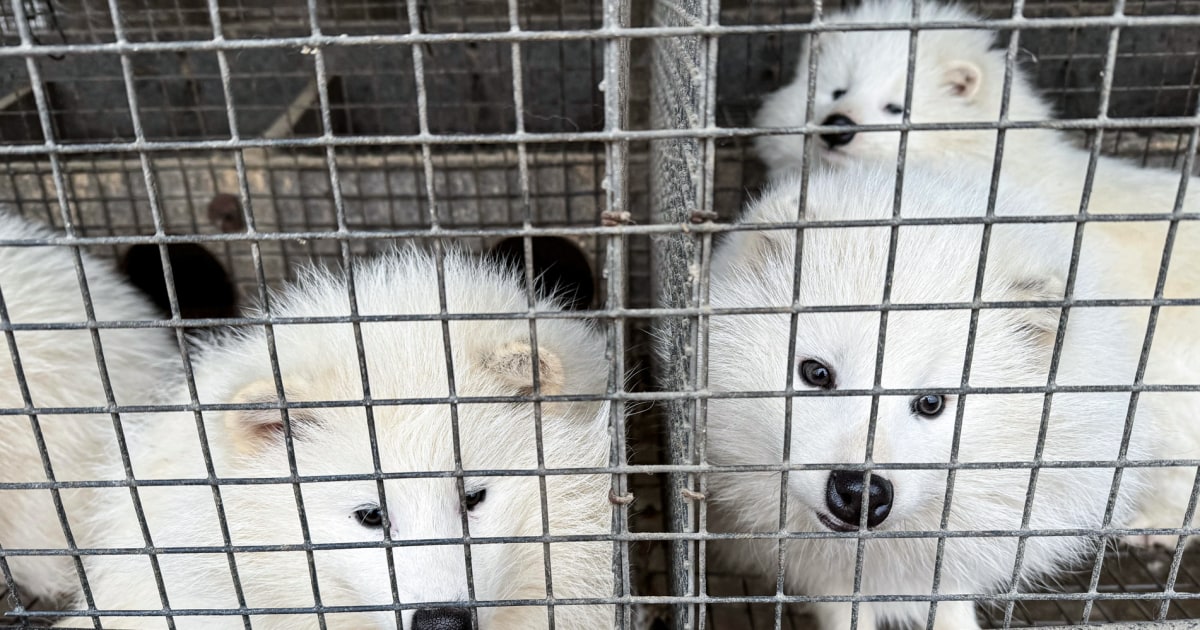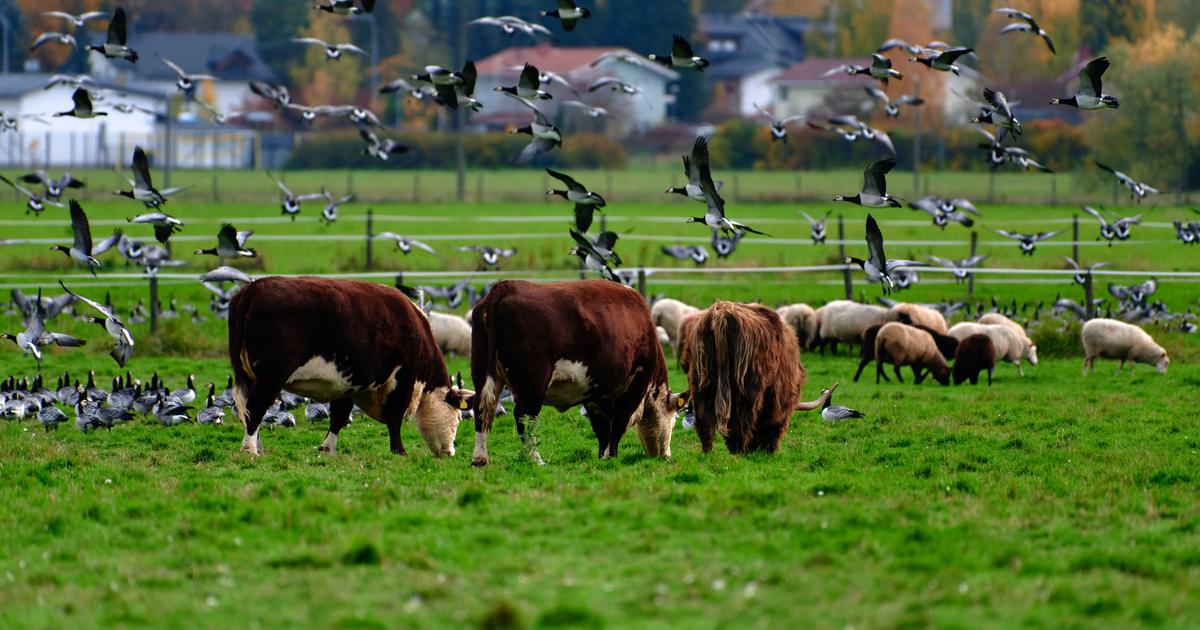This is the catastrophic scenario that all health authorities around the world fear: the appearance of a mutant Sars-Cov2 virus on which future vaccines against Covid-19 would have little or no effect.
It is precisely the discovery in Denmark of a Covid-19 mutation transmitted to twelve people by farmed mink that prompted this country to slaughter all of these animals.
The world's leading producer of American mink skins, Denmark has decided to euthanize nearly fifteen million as a precautionary measure.
After the first cases of Covid-19 detected in these small mammals, Copenhagen had already launched this summer a vast campaign of culling in infected farms, which had extended in October to neighboring farms due to the outbreak of the epidemic of Covid-19 in many farms.
But the appearance of a mutant strain of the coronavirus in people infected with mink is a game-changer and causes a cold sweat in the Danish executive.
“The virus mutated via mink can create the risk that the future vaccine will not work as it should,” said Prime Minister Mette Frederiksen.
"A preventive measure"
Mutation of a virus is normal, and changing it does not necessarily mean that it will behave differently, scientists say.
But if this mutation has not resulted in more serious effects in humans, the Danish authorities believe that it is characterized by a lower effectiveness of human antibodies (
Editor's note: which fight against the normal virus
), this which threatens the development of a vaccine against Covid-19.
The Deputy Director General for Research of the French Health Security Agency (ANSES) fully understands the reaction of the Danish authorities who have been accounting since last June for no less than 191 mink farms affected by Sars-Cov2.
"The mass slaughter announced today is a preventive measure intended to prevent this mutant virus detected in twelve people from spreading in the population and eventually creating clusters", explains Gilles Salvat.
"The worst-case scenario is to have a pandemic returning from here to Denmark," warned the head of the Danish Infectious Disease Control Authority (SSI), Kåre Mølbak.
READ ALSO>
Coronavirus: should we fear being contaminated by our animals?
This virus mutation was found in five different herds.
The 12 human cases identified were in northern Jutland (west), precisely the region with the most mink farms in Denmark.
These human cases are however no longer carriers of the mutated virus according to the SSI.
Several suspected cases of transmission of mink to humans had been recorded at the start of the pandemic, especially in the Netherlands, which killed more than a million of these mammals.
In Spain, mink had also been slaughtered in July without a national slaughter plan being decided.
"Cases of mink affected by the virus have also been reported in Sweden and Italy," adds Gilles Salvat.
Between 10,000 and 15,000 mink in French farms
While France has four mink farms on its territory, the LREM deputy of the Alpes-Maritimes Loïc Dombreval believes that it is urgent to close them as a precaution.
“It's a public health issue,” insists this trained veterinarian.
It is extremely dangerous to maintain farms where thousands of mink are crammed on top of each other, which constitutes a potential focus of phenomenal Covid-19 and the door open to a mutation of the virus, adds the elected official.
We cannot take the risk of seeing the proliferation of a type of mutant coronavirus that is potentially destructive to humans.
"
Newsletter - Most of the news
Every morning, the news seen by Le Parisien
I'm registering
Your email address is collected by Le Parisien to enable you to receive our news and commercial offers.
Learn more
"I would like to remind you that there has been no case of Covid-19 detected in mink in France where farms are much smaller and scattered over our territory", tries to reassure Pierre-Philippe Frieh, the carrier. word of the French federation of fur trades.
France has between 10,000 and 15,000 mink in its farms and the Minister of Ecology announced in September that she wanted to close them within five years, but it was then for animal welfare reasons.
“From the first cases of Covid detected in the Netherlands, the French Ministry of Agriculture issued recommendations and surveillance of French farms,” says Gilles Salvat.
PCR tests such as those which are performed on humans are thus carried out regularly on animals to detect whether or not they are carriers of the virus.









